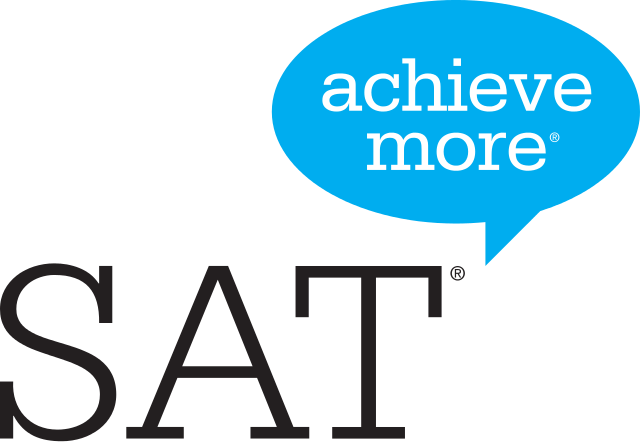Finding a dedicated creative writing program at a school you're excited about can be a real challenge, and that's even before you start worrying about getting in. Nonetheless, there are some great options. In order to help you find the best school for you, this list rounds up some of the best colleges for creative writing in the United States.
Alex Heimbach
Recent Posts
The 12 Best Creative Writing Colleges and Programs
How to Teach the SAT: Best Tips for Tutors and Parents
When I started working as a professional tutor, I was fresh out of college with few qualifications other than high test scores and some volunteer experience. I struggled with tutoring my first few students—I didn't feel comfortable giving them assignments and I struggled to figure out how best to use our lesson time.
But after years of tutoring, I became thoroughly familiar with the ins and outs of the whole process. I've drawn on my hard-earned knowledge to create this guide laying out the key steps to helping someone excel at the SAT so that you know where to start when tutoring your own student or child. A big part of being a great tutor is being properly prepared—these seven steps will set you on the right path to raising your student's score:
As a high school student, I took both the SAT and the ACT. I’d been taking the SAT every couple of years since I was in middle school, so I planned to focus primarily on it. However, as a public school student in Colorado, I was required to take the ACT by my school. My scores on the two tests were relatively similar and I ended up submitting both.
Taking both tests, whether because of school requirements or personal preference, has become an increasingly common choice for students, especially those applying to top colleges. Though it isn’t necessary to take both the ACT and SAT, doing so might be the right plan for you. This guide will walk you through the pro and cons of taking both tests.
How to Teach the ACT: A Guide for Tutors and Parents
I spent four years as a test-prep tutor, working with students on all aspects of the ACT and SAT. When I started out, I knew how to take the tests, but I wasn't that good at teaching them. Over the years, however, I've learned a lot about how to be an effective teacher, and it's largely not about the kinds of tips and tricks you might expect.
You might have heard of something called the SAT II (or SAT 2) and wondered what it could be. A secret, harder version of the SAT, perhaps? The reality is less dramatic: the SAT II is just an old name for the SAT Subject Tests.
This guide will explain what the SAT II was and outline the differences between the SAT 1 vs SAT 2.
As an ACT tutor, I often fielded questions about whether the test would be looked down on by admissions officers, especially those at Ivy League schools. Because the SAT was the dominant college admissions test for so long, many students and parents worry that—at least in the Northeast—schools still prefer the SAT over the ACT. However, that time has definitely passed, and schools will now accept either test equally.
Read on for a more in-depth explanation of how Ivy League schools view the ACT today, and learn the differences in testing policies that might affect your decision to take the ACT or SAT.
The average ACT score for US students is a 20.6. The middle 50% of students score between a 16 and a 25. The following chart breaks down the nationwide average by section:
| English |
Math |
Reading |
Science |
| 19.2 |
20.2 |
21.2 |
20.6 |
However, when you’re thinking about college admissions the nationwide average isn’t important: what really matters is the average score of the students you’re being compared with.
If you’re a high achieving student applying to very selective schools you’ll need a score much higher than the national average. If, on the other hand, you’re applying to certain state schools, a 20 is a totally acceptable score.
Average SAT Scores: What They Are and What They Mean
When they first start tutoring, almost all students ask the same question: what is the average SAT score?
The answer varies a bit every year, but for students in the class of 2019, the average SAT score was a 1051. I’ve created a chart by section below.
What Is the ACT? A Complete Explanation of the Test
If you've found this article, you've probably vaguely heard of the ACT (and if you hadn't before, well, you have now!). Maybe you have some idea that it has something to do with college, but you're still pretty confused about what exactly it is. I'm here to help!
The ACT, like the SAT, is a standardized test used for college admissions. If you're planning to apply to college in the US, you'll almost certainly have to take one of these tests (and you might still need to even if you're planning on going to school outside the US).
This article will take you through everything you need to know about the ACT, including why students take it, what it tests you on, and when you should plan to take it yourself.
ACT Admission Ticket: What It Is, How to Print, and What to Do If You Lose It
If you're planning on taking the ACT, you may know that you'll need an admission ticket (and photo ID) to get into the testing center. Because ACT, Inc. makes such a big deal about these tickets, figuring out how to get it just right can be one of the most stressful parts of registering for the test. But don't worry—the process isn't as complicated as it seems.
This guide will walk you through exactly what the ACT admission ticket is, how to get one, and what to do if you lose yours (it's not as bad you think!).
Pronoun Agreement on ACT English: Tips and Practice
Pronoun agreement errors are an especially confusing type of ACT English question because people often misuse pronouns, especially when you speak. In fact, I just made a pronoun mistake: can you spot it?
Take a closer look at the second half of my first sentence: "people often misuse pronouns, especially when you speak." Who is "you" referring to here: "people." However, the correct pronoun for the third person plural is "they." The correct version of the sentence is "people often misuse pronouns, especially when they speak."
On the ACT English section, you'll be expected to spot these kind of errors in a variety of different contexts. I'll go over both the basic rules for pronouns and the common mistakes you'll see on the test, so that you can approach the test with confidence.
What Is the SAT? A Complete Explanation of the Test
If you’re thinking of applying to college, it’s vital that you know what the SAT is and how it will affect your application process.
So what is the SAT? It’s one of two standardized college admissions tests in the US. (The other is the ACT.) It's run by the College Board, a non-profit that also administers the PSAT and the AP (Advanced Placement) program.
Everything You Need to Know About Commas for the ACT
Nobody likes commas: they're weird and confusing and possibly pointless. My brother decided to boycott them entirely in his senior year of high school, leaving his lists running together and his appositives undefined. Even veteran copy editors sometimes struggle with where exactly to place these reviled punctuation marks.
Even so, if you want to succeed on the ACT English, you'll have to learn how to expertly employ commas. The good news is that there is a fairly limited set of comma rules you'll need to know for the ACT.
The Ultimate Study Guide for ACT English: Tips, Rules, Practice, and Strategies
This guide collects the best ACT English prep material on the internet. We've created everything here from scratch, and we think it's the best guide available anywhere.
In writing it, we pored over real ACTs, consulted the best existing books, and thought deeply about what you'll need to excel on ACT English. Our subject guides closely reflect what you’ll see on the actual test and our strategies have all been used successfully by our past students. We’ve covered everything you need to know about ACT English.
This post is a table of contents, designed to lead you through the different articles you’ll want to study in a logical order and explain how to get the most out of them. It starts with the big-picture, high-level ideas that will get you thinking about the best way to approach ACT English. Then it moves on to our coverage of the skills and concepts you’ll see on the test. The last section includes a variety of ACT English tips and strategies that can help you create a study plan and learn to attack the test in the most efficient way.
The Complete Prep Guide for SAT Writing: Grammar, Strategies, and Practice
This complete guide includes everything you need to know about SAT Writing. As experienced tutors, we’re all too familiar with the shortcomings of most test-prep materials, so we've created our own free guide to SAT Writing, which we believe is the best available (even compared to expensive books from big-name companies!).
To create this guide, we carefully analyzed real SATs, read the best SAT books we could find, and thought carefully about what you actually need to know to succeed on SAT Writing. Rather than trying to condense all the info we came up with into one page (which would be insanely overwhelming!), we’ve created this article to serve as a table of contents and take you through the different parts of the SAT Writing section.
























